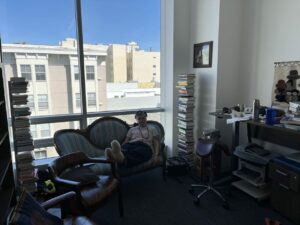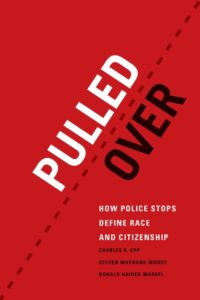
Here’s the letter I submitted in support of AB 1210 and AB 960 today. To do the same, click here!
Dear Committee Members,
Letter of Support: AB 1210 and AB 960
My name is Hadar Aviram. I am a UC Hastings law professor specializing in corrections and the author of a recent book about parole in California, Yesterday’s Monsters: The Manson Family Cases and the Illusion of Parole (UC Press, 2020.) I write to offer my strong support for two measures discussed at today’s hearing: AB 1210 and AB 960.
AB 1210 is an essential step for reforming parole. While the BPH is diverse in terms of gender and race, it is not at all diverse in terms of professional background. My research revealed that, almost invariably, gubernatorial appointees to the BPH are former law enforcement officers from the police and correctional fields. This means that, continuing education notwithstanding, the board is truly impoverished in terms of several topics that are incredibly germane to the commissioners’ deliberation: substance abuse, mental health, and the like, which are part and parcel of the skillset of people from the helping professions. In addition, my research reveals that the commissioners are overconfident about their ability to discern remorse or insight from nonverbal clues such as the parole applicant’s demeanor. This confidence is unfounded: robust social science research shows that law enforcement officers, who believe they are better than the general population at detecting sincerity or release, are actually worse at it in controlled experiments. This is another reason to diversify the board.
I also offer my strong support for AB 960. I am currently working on a book about the COVID-19 crisis in California prisons (under contract, UC Press) and have several publications out on the topic. Among the things I have found is that the Governor’s release policy was flawed not only in its modest numbers, but also in terms of determining *who* was to be released. I suspect that the tendency to release people with short sentences toward the end of their sentence was largely political, to avoid backlash; in fact, the people who are older and serve longer sentences (now about a third of the CA prison population) are the ones who pose the least risk to the outside and who need the most help because they, themselves, are at medical risk. It is essential not to pollute public health considerations with a flawed discourse of deservedness. We must expand medical parole, not only for the sake of abating this pandemic, but also for the sake of preventing the next.
Many thanks for adding my research into your considerations. I am happy to provide any further information you need.
Best,
Hadar Aviram




No comment yet, add your voice below!